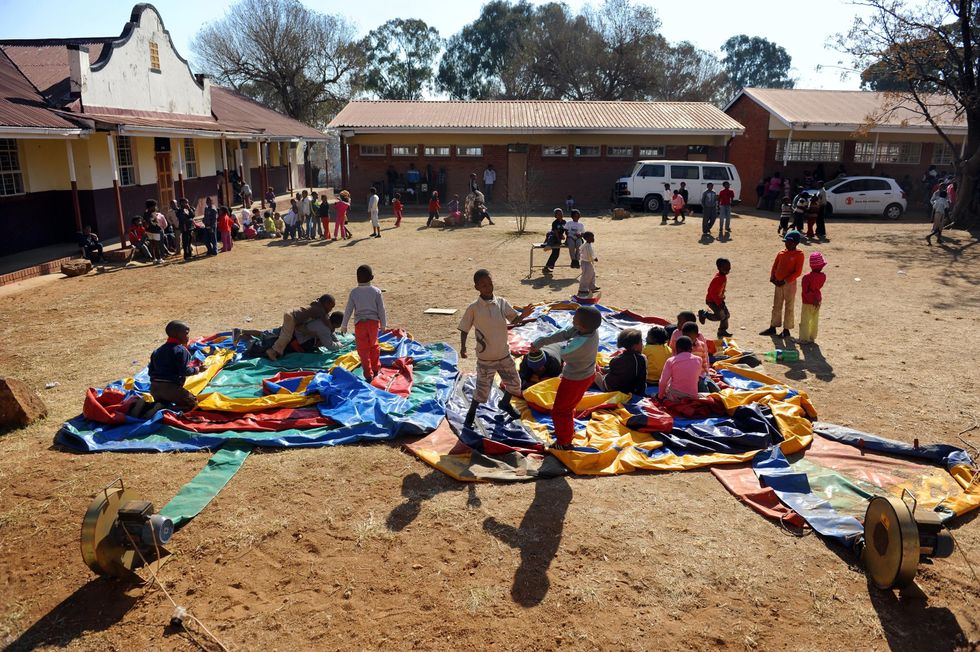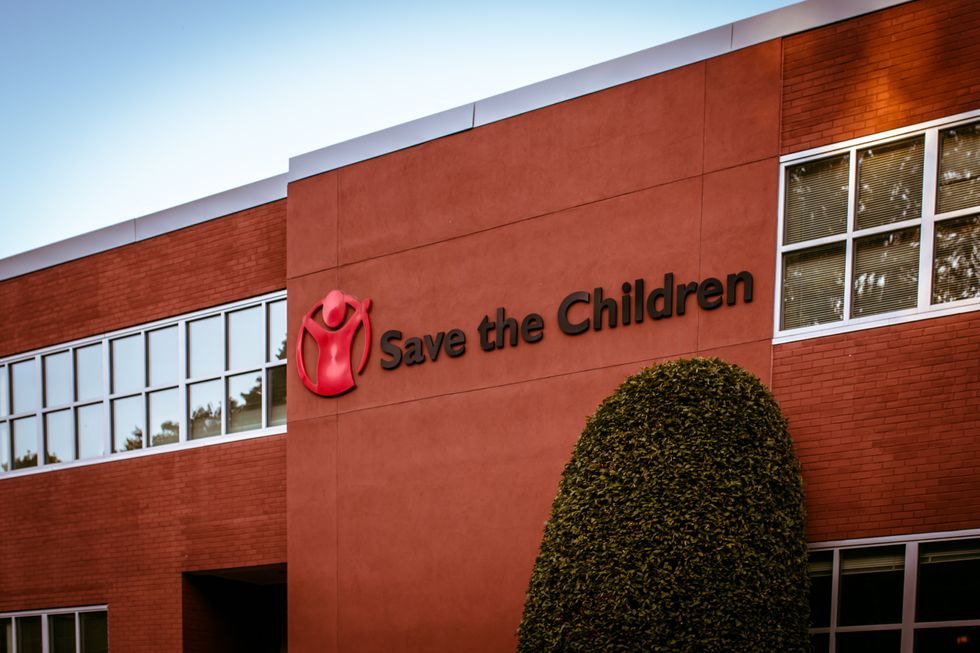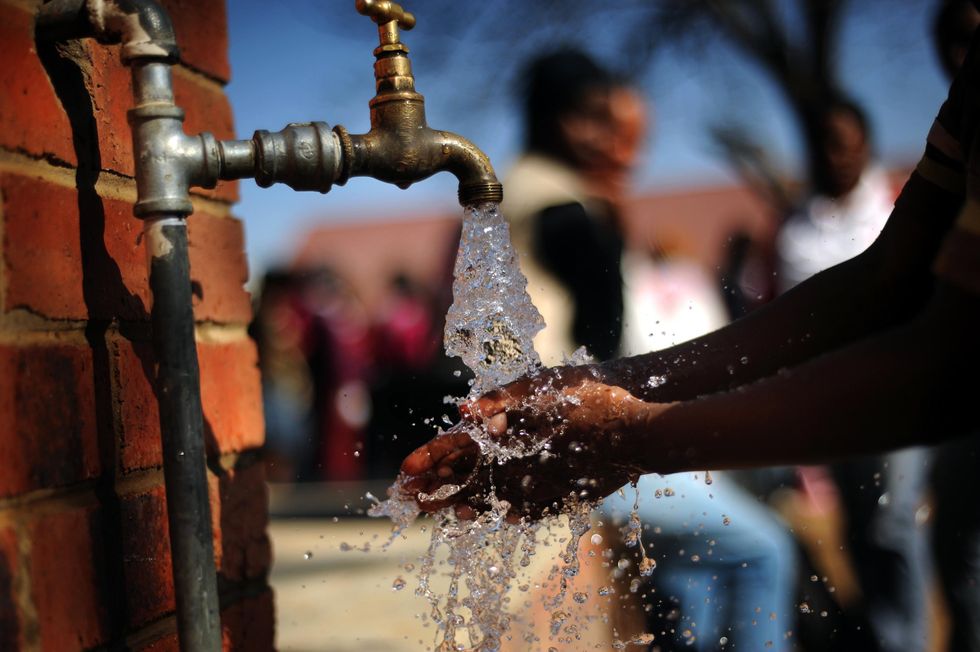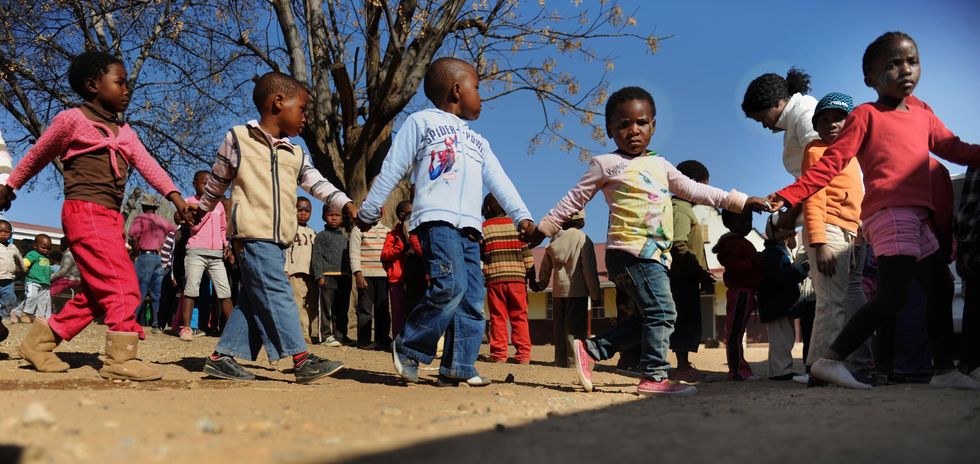Tom Tugendhat talks Mauritius and 'colonial guilt'
GB News
Save the Children ended its sponsorship scheme, saying the change would promote 'inclusion and greater equity' among kids
Don't Miss
Most Read
Trending on GB News
Save the Children has ended its child sponsorship programme amid growing criticism that the scheme represents a "legacy of colonialism" and promotes a "white saviour complex".
The charity, which pioneered child sponsorship in the 1900s, has asked donors to instead support programmes benefiting entire communities rather than individual children.
The controversial move has sparked debate between critics who view the practice as outdated and colonial, and supporters who believe it provides tangible benefits to children in developing countries.
Save the Children said the change would promote "inclusion and greater equity" among children.

Orphaned and vulnerable children play on a deflated bouncy castle at a project run by Save The Children
PA
According to the charity, only 20 per cent of global sponsors regularly communicated with their sponsored children, leaving many feeling "rejected" when they didn't receive replies to their letters.
"Disparities in gifts led to feelings of jealousy or sadness," said Gabriella Waaijman, chief operating officer of Save the Children International.
The charity also found children often felt uncomfortable discussing personal matters with sponsors.
Some children felt pressured to "smile and please their sponsor" when having their photo taken.
Managing correspondence between sponsors and children was also a significant administrative burden for the organisation.
MORE LIKE THIS:

The charity also found children often felt uncomfortable discussing personal matters with sponsors
Wikimedia Commons

A child washes their hands as orphaned and vulnerable children attend a project run by Save The Children
PA
Richard Barlow, 60, from Surrey, expressed outrage at being unable to maintain contact with Mahim, a Bangladeshi teenager he had sponsored since 2020.
"This is an absolutely disgraceful development," he told The Times. "How do they propose explaining to Mahim he won't hear from us again?"
However, Canadian professor Kathy Nolan, who has researched the topic for nearly a decade, welcomed the change.
"Child sponsorship is simply another legacy of colonialism," she said. "We feel we know what is best for these children, but we don't."
Nolan criticised the "marketing" of children like products on Amazon.
Ian McLintock, who runs Charity Excellence, rejected the criticism of child sponsorship.
"If I were black and had been born in Kenya then it would be OK for me to help a child in poverty, but because I'm white it's not," he said.

Child sponsorship is estimated to bring in over £2 billion annually worldwide
PA
World Vision has taken a different approach, maintaining sponsorship while directing funds to entire communities.
A study showed children who exchanged multiple letters with donors were "happier, more confident and more hopeful" than those who did not.
One British donor described the relationship with her sponsored child as "mutually beneficial".
Save the Children defended its decision, stating that "conflict, extreme weather events and growing inequality" are causing more migration, making traditional sponsorship less effective.
"We've opted for a more flexible approach that will have more impact," said Waaijman.
The charity assured donors they "won't abandon any sponsored children" who will continue receiving support through their programmes.
The change will allow them to "significantly reduce administrative costs" and respond more quickly as children's needs change.
Child sponsorship is estimated to bring in over £2billion annually worldwide.








